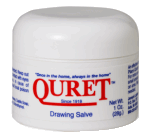What to Do if You Cut Off Your Finger (and 9 Other Important Injury Tips)
by www.SixWise.com
Accidental injuries are a major concern in the United States,
as 106,742 people died in 2002 from an unintentional injury.
And, according to the National Security Council, Americans
had one in 2,698 odds of dying from such an injury that year.
In-home injuries are also occurring at high rates. Between
1992 and 1999, an average of 18,048 people died each year
from unintentional home injuries, according to research from
the University of North Carolina (UNC) Injury Prevention Research
Center.
|

Accidents do happen, and knowing what to do in an emergency
will ensure that your family remains safe and sound.
|
Knowing what to do when an injury occurs -- for yourself,
your child or another family member or friend -- can mean
the difference between recovery or permanent injury and even
life or death. So take a look through the tips below, and
print them out if you like, so you have an idea of what to
do if, and when, an unexpected injury occurs.
What to Do If …
1. Your Finger is Cut Off
If a finger is severed you have a six- to 12-hour window
to attach it. The first thing to do is call 911, then gather
all parts of the severed finger (even small parts), put them
on ice and wrap it in plastic wrap. You can put the package
into a jar or cup with a lid, but do not put the finger in
water -- this will cause it to shrivel. Then get to the emergency
room as soon as possible.
2. You're Bit by a Snake
One of the most important things to do, according to Dr.
Sanjay Gupta, CNN Medical Correspondent, is to remain calm,
as this helps keep the venom localized in one place. Meanwhile,
move away from the snake so that it can't bite you again.
As best as you can, don't move the area that was struck (this
means, if you're hiking and are bit in the ankle, your friends
should carry you out). This minimizes blood flow so that any
poisonous venom does not spread, particularly to your heart.
You should also take off any jewelry or clothing near the
area, as they could become constricting when swelling occurs,
and get to an emergency room as quickly as possible.
3. You Puncture/Cut an Artery
You can usually identify if you've cut an artery because
bright red blood will squirt from the wound with each heartbeat,
as opposed to freely bleeding. Do not attempt to care for
this type of wound by yourself, as serious blood loss can
occur. You should apply pressure to the wound to control the
bleeding and call 911 and/or get to the emergency room immediately.
|
Poison Control Centers
National Hotline

For any type of poisoning emergency, or non-emergency
questions, call the Poison Control Centers National
Hotline, 24/7, at: 1-800-222-1222.
|
4. You Get Poked in the Eye
Any number of things can be dangerous to the eyes: a finger,
scissors, a friend's elbow, champagne corks, fireworks, toothpicks,
forks, etc. In the event that you are poked in the eye, hard,
do not rub it or try to remove any debris or a contact lens
(unless there's rapid swelling and you can't get medical attention
quickly).
You need to call 911 and get to the emergency room, as even
seemingly minor injuries can cause serious injuries to the
eye. You can try placing a loose bandage or patch over the
eye in the interim to help keep it closed and alleviate pain.
5. You're Seriously Burned
First, call 911, and then make sure that any hot material
is no longer in contact with the skin -- but do not remove
any burnt clothing stuck to the burn. (A serious burn can
also cause a person to stop breathing. In this case, clear
their airway and administer CPR if necessary.)
Use a dry, sterile bandage or clean cloth to cover the burn,
being careful not to break any blisters. If fingers or toes
are burned, separate them with clean dressings. Next, elevate
the burned area above the level of the heart and, as long
as it is not uncomfortable, to prevent shock lay the person
flat, elevate their feet about 12 inches and cover them with
a blanket.
You should not apply ointment or creams or immerse the burn
in water. This can cause further damage to the skin, or shock.
Also, don't blow on the burn or try to give the person anything
by mouth. Get medical attention as quickly as possible.
|
Poison Ivy? Bug Bites? Skin Boils?
Splinters? Quret!

Quret's Drawing Salve is an all-natural formula that
has been safely and effectively providing long-term
relief for nearly any skin eruption -- since 1918. Treating
skin boils is Quret's most popular usage, but it's also
extremely effective for:
- Minor cuts/scrapes
- Ingrown toenails
- Insect bites/stings
- Splinters
- Paper cuts
Learn
more about Quret's
Drawing Salve now!
|
6. You Get a Fishhook Caught in You
If the point of a fishhook is stuck in your skin, you can
simply pull it out and wash the area with soap and water.
However, if it's stuck in past the barb, pulling it out can
cause more damage. Instead, push the hook through the skin
until the barb comes out. Then, use pliers or wire cutters
to cut off the barb, then pull out the rest of the hook and
wash with soap and water.
You should seek medical attention immediately if a fishhook
is caught in your eye or face, or embedded deeply into your
skin. It is also a good idea to see a doctor even if you're
able to remove the hook, as a tetanus booster shot may be
needed.
7. You Splash Chemicals in Your Eyes
If bleach, ammonia, cleaning agents or any other chemical
gets into your eyes, flush them with cool tap water immediately.
Hold the eyelid open and allow running water from the faucet
to flush the eye for 15 minutes (if both eyes are affected,
water from the shower can be used).
If you're wearing contact lenses, and they don't fall out
during the flush, you can try to remove them after flushing.
You should then seek medical help immediately, and continue
flushing the eye in the meantime.
8. You Get Poison Ivy, Oak or Sumac
First wash the areas thoroughly with soap and water to remove
any remaining irritants on the skin. In some cases, the best
treatment may then be leaving the area alone. However, topical
corticosteroid medications can be used to reduce inflammation
(these do carry a risk of an irritating skin condition, even
with over-the-counter varieties). Other options to help reduce
itching and other symptoms include wet dressings, anti-itch
creams (we like Quret
Drawing Salve) and drying lotions.
9. You're Stung by a Bee
In a severe case when a person is allergic, use the Epi-pen
or emergency kit if available and call 911 immediately.
For most stings, however, the following steps can be used:
Remove the stinger by scraping it with a credit card or other
flat-edged object (don't use tweezers, as these can increase
the amount of venom released). Wash the area with soap and
water and place an ice pack, wrapped in a cloth, on the site
for 10 minutes. Wait 10 minutes more without the pack, then
reapply the ice for another 10 minutes. An anti-itch cream
may be used.
Watch for any signs of infection of swelling over the next
few days and, if necessary, seek medical attention.
10. You Get a Concussion
A concussion can result if your head is hit with an object,
such as a ball, you fall or are in another accident. Anytime
you lose consciousness, blackout, feel confused, or have a
persistent headache after hitting your head, you may have
a concussion.
You should seek medical help right away, as a health care
worker can give you a neurological evaluation and recommend
proper treatment.
Recommended Reading
Serious
Injury Toll in the Supposed Safest of Places Now Tops 12 Million:
What You Need to Know to Be Safe
The
Top 5 Causes of Head Injuries and How to Avoid Them
Sources
National
Security Council
BBC
News: How to Reattach Severed Fingers
CNN.com
Medline
Plus Medical Encyclopedia